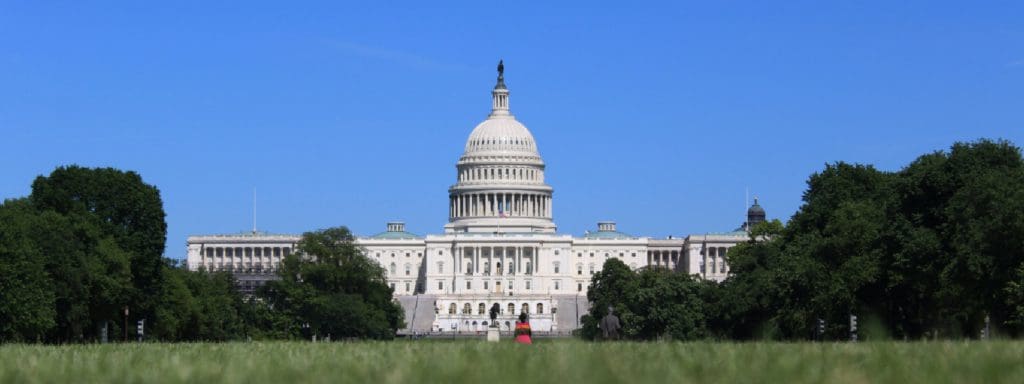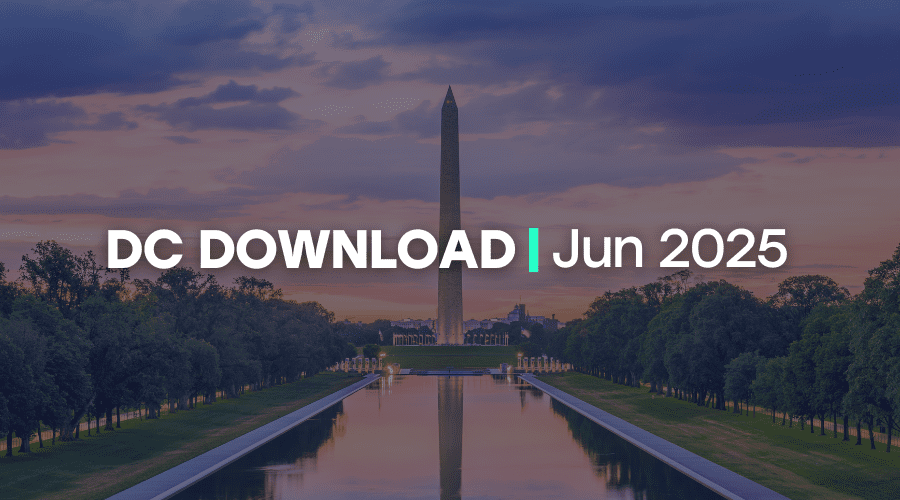This year is going by fast. It is hard to believe we are already in the middle of summer. Of course, lawmakers do not get deterred by summer plans when they are in the middle of heated infrastructure talks. If you have been trying to keep up with the infrastructure debate or just making summer plans, here is an overview of the latest legislative issues affecting nonprofits during these challenging times:
Infrastructure Negotiation Update
A month after the announced bipartisan infrastructure framework between President Biden and 10 members of the bipartisan group, drafting the legislation and funding it has proven a daunting task. The bipartisan infrastructure talks appeared to breakdown on Monday, July 26, with Republicans and Democrats in conflict over what the other side had promised and former President Donald Trump urging Republicans not to make a deal.
The White House and Senate Democrats negotiating the deal, which includes $579 billion in new spending, sent Republicans a global offer Sunday night aimed at finishing unresolved items, such as highways and bridges, water funding, broadband, Davis-Bacon Act standards, transit, unspent COVID-19 dollars, and an infrastructure bank. But Republican negotiators said the offer reopened many issues they believed had been resolved.
The bipartisan group of lawmakers hoped to reach a final agreement by early this week after a vote to advance undrafted legislation failed last week. But that appears unlikely, with several issues outstanding. Among the biggest sticking points is transit, but broadband has also become a point of contention. Senate Democratic leaders are trying to pass the infrastructure bill and an FY2022 budget resolution with instructions for a $3.5 trillion reconciliation bill on other Democratic priorities before the August recess.
At the beginning of the month, the co-chairs and co-founders of the Nonprofit Infrastructure Investment Advocacy Group (NIIAG) sent a letter in support of H.R. 3684, the INVEST in America Act of 2021, which addresses certain priorities outlined in the most recent NIIAG policy agenda.
Nonprofit Employment Update
According to the latest report from The Center for Civil Society Studies (CCSS) at Johns Hopkins University, June saw a sizable gain of more than 60,000 nonprofit jobs compared to May 2021’s total representing a gain of over 8% of the estimated 745,000 jobs still lost as of May. The study also found that since June 2020, nearly 60 percent of nonprofit jobs that were eliminated due to the health and economic crisis have been restored. If hiring continues at that pace, it will take until September 2022 for nonprofit employment overall to exceed pre-pandemic levels.
Nonprofits Sent Letter to the Administration and Congressional Leaders
On July 21, 55 national nonprofits sent a letter to President Joe Biden and congressional leaders urging them to recognize and invest in the unique role the nonprofit sector plays in rebuilding the economy and strengthening communities. The letter identifies challenges charitable organizations continue to face and seeks support for urgently needed policy objectives that will enable charitable organizations to contribute to the nation’s relief, recovery, and rebuilding. The Charitable Nonprofit Policy Priorities letter is open to all organizations that support the policy objectives and the work of charitable organizations in communities, and your organization can sign on here.
Supreme Courts Rules on Donor Disclosure
On July 1, the Supreme Court issued a major decision regarding nonprofit donor disclosure laws and the First Amendment. In Americans for Prosperity Foundation v. Bonta, No. 19-251, the Court sided with hundreds of nonprofits in arguments protecting the Schedule B donor information from public scrutiny, reversing lower court rulings that charities had to turn over donor identifications. The Court held that a California law requiring charitable organizations to file their annual 990 Schedule Bs with the State, disclosing the names and addresses of major donors, is unconstitutional because it violates the First Amendment right to free association. The Court reasoned that disclosure of donor information has a broad chilling effect on charities and their donors, even when the information is kept confidential, and the information is already required to be provided in Federal tax filings.
The case emerged from a regulation in California that requires all charities operating in the state each year to file with the State Attorney General a copy of the organization’s 990 form, along with any attachments and schedules. The two plaintiffs, Americans for Prosperity Foundation and the Thomas More Law Center, objected to the disclosure of Schedule B to Form 990, on which organizations list the names and addresses of donors who have contributed more than $5,000 in a particular tax year or, in some cases, who have given more than two percent of the organization’s total contributions during such tax year.
Upcoming Hearing on Bipartisan Retirement Package
On Wednesday, July 28 at 10 a.m., the Senate Finance Committee will hold a hearing on the bipartisan retirement package. Ahead of the hearing Independent Sector, along with other nonprofit organizations in Idaho, submitted a letter in support for the inclusion of the bipartisan Legacy IRA Act (S. 243) sponsored by Senators Cramer (R-ND) and Stabenow (D-MI) in future retirement legislation, such as the “Securing a Strong Retirement Act of 2021.” The Legacy IRA Act will encourage more charitable giving by enabling seniors to make contributions from their individual retirement accounts (IRA) to charities through life-income plans. A modified version of the Legacy IRA Act was already included in the Ways and Means-passed Securing a Strong Retirement Act in May.



